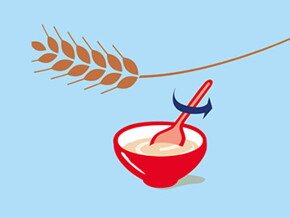
Importance Of Snacking For Children
What Are The Benefits Of Children Eating Snacks?
IMPORTANT NOTICE: The World Health Organization (WHO) recommends exclusive breastfeeding for the first 6 months and continued breastfeeding for as long as possible. Growing up milks are formulated to meet nutrition needs of healthy young children older than 1 year and should not be fed to infants.
Kids Snacks are an important and essential part of a toddler’s nutritional diet, mainly because his stomach is small and he’s unable to eat large quantities of food in one sitting.
We invite you to offer your child healthy snacks in-between meals to help him feel full and provide him with lots of benefits.
Let us share with you the most important benefits of snacking:
- Snacking can prevent your toddler from feeling hungry between meals, and can also increase his ability to concentrate.
- Snacking can help your toddler get used to a regular eating pattern, in addition to healthy eating habits that will certainly help him maintain a healthy weight.
- Snacking can also protect your child from chronic diseases, like heart disease, cancer, diabetes, obesity and hypertension.
- Snacking can provide your toddler with essential nutrients that his body needs in order to grow, move and remain healthy, and thus compensate for any lack of nutrients in his main meals.
- Snacking can, as well, encourage your child to create a tight bond with nutritional and healthy foods. That way, he will be able to know when he’s hungry or not, and he will learn not to eat out of boredom.
In order for your kids snacks to be extremely healthy and full of benefits, we recommend that you either prepare them yourself from various nutritious sources, or ask your doctor for the best cereal made of wholegrain and other natural ingredients without artificial colorings or flavors. For your toddler’s diet to be balanced and easily digestible, it should contain many essential nutrients, such as: iron to keep anemia at bay, vitamin C to boost your child's ability to absorb iron, as well as probiotics, iodine, omega-3, zinc and vitamins B-1, which can collectively contribute to the development of your child’s brain and cognitive skills.
Read More: Essential Nutrients Every Child Needs!




















